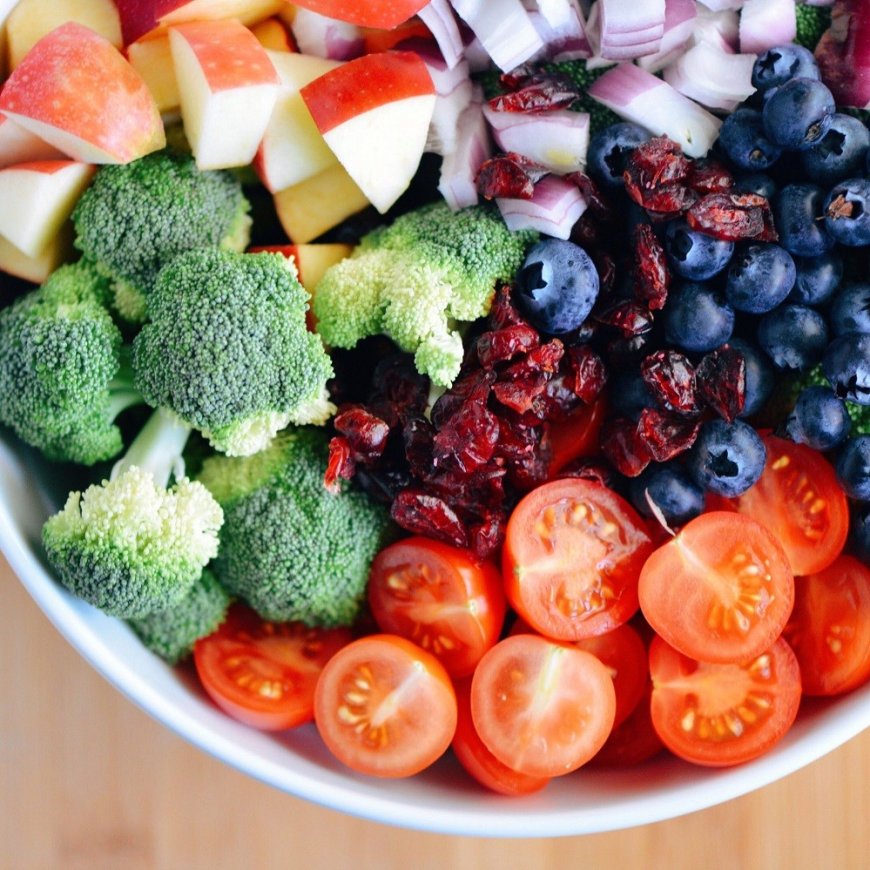Anti-inflammatory diet: however you'll scale back inflammation naturally
you can do to reduce inflammation and improve your overall health - something you can learn in our guide. Anti-inflammatory diet.

Inflammation naturally is not usually a negative thing. It is natural process that helps your body heal and protect itself from injury. However, it can be harmful. Chronic inflammation can last weeks, months or years - and can lead to many health problems. That said, there is still much you can do to reduce inflammation and improve your overall health - something you can learn in our guide. Anti-inflammatory diet.
Causes of chronic inflammation.
- The role of diet
- Food to avoid
- Food you should eat
- Sample Menu
- Other suggestions
- Suggestions for a better lifestyle
- Conclusion
What is inflammation? The way to protect itself from disease, illness or injury. As part of the inflammatory response, your body increases the production of its white blood cells, as well as immune cells and substances such as cytokines. Together they help fight disease. Common symptoms of persistent (short-term) inflammation are redness, pain, warmth and swelling. On the other hand, persistent (prolonged) inflammation can occur inside the body with no obvious symptoms. This type of inflammation can cause diseases such as diabetes, heart disease, fatty liver disease and cancer. Persistent inflammation can also occur if people are obese or under a lot of stress for a long time. When doctors check for inflammation and inflammation, they often test your blood to see if there are any specific symptoms such as C-reactive protein (CRP), homocysteine, TNF alpha and IL-6. Inflammation is a protective mechanism that allows your body to protect itself from disease, infections or injuries. Unfortunately, inflammation can also be harmful, which can lead to the development of several different disease states.
What is the cause of inflammation?
Some lifestyle factors - especially normal ones - can lead to inflammation. Too much sugar or corn syrup is particularly harmful and can lead to insulin resistance, diabetes and obesity. Researchers have also hypothesized that lots of reconstituted carbohydrates such as white bread can lead to inflammation, insulin resistance and obesity.
In addition, eating processed foods with fat has been shown to cause inflammation and damage to the endothelial cells that line your arteries (blood vessels). Another potential supplement is vegetable oils, which are commonly used in processed foods. Regular intake can lead to an imbalance in the levels of omega-6 and omega-3 acids in your body, which some researchers believe may lead to more inflammatory reactions.
Must Read: Reading books extends life
Role of diet in the fight against inflammatory reactions.
If you want to prevent inflammation in your body, you should eat fewer inflammatory foods and focus on foods that prevent the reaction instead. Base your diet on coarse, nutritious foods that contain antioxidants These reactive molecules, free radicals, appear as a natural part of your metabolism, but they can lead to inflammation if there are too many of them.
Your personal anti-inflammatory diet should include a healthy balance of proteins, carbohydrates and fatty acids at all meals. Also, make sure you meet your body's needs when it comes to vitamins, minerals, fiber and water. One type of diet that is considered anti-inflammatory is the "Mediterranean diet", which has been shown to reduce the number of inflammatory markers such as CRP and IL-6. Low carb diets can also reduce inflammation, especially for those who are overweight or have metabolic syndrome. A vegetable diet has been shown to reduce inflammation - mainly due to its high content of antioxidants and healthy nutrition. Fibromyalgia diet is also frequently mentioned among rheumatics and those with harmful inflammatory reactions in the body.
Foods you should avoid.
Some foods are associated with an increased risk for chronic inflammation. Consider reducing consumption of following :
- Sugar drinks: Soft drinks and fruit juice
- Reconstituted carbohydrates: White bread, white pasta, etc.
- Basics: Biscuits, sweets, cakes and ice cream
- Processed meat: Sausages, cold cuts and minced meat
- Processed snacks: Biscuits, potato chips and baked goods
- Some oils: Seed oil and processed vegetables, such as soybean or corn oil.
- Trans fat: Foods with partially hydrogenated ingredients
- Alcohol
Food to eat:
Include many of these anti-inflammatory foods in your diet:
- Vegetables: Broccoli, cabbage, Brussels sprouts, carrots, etc.
- Fruits: Especially berries with a deep, dark color, such as grapes or cherries
- High fat products: Avocado and olives
- Healthy fatty acids: Olive oil and coconut oil
- Heavy fish: Salmon, sardines, herring, mackerel and anchovies
- Nuts: Almonds and other nuts
- Peppers: common peppers and chili peppers
- Chocolate: Dark chocolate
- Spices: turmeric, fenugreek, cinnamon, etc.
- Tea: green tea
Useful tips to reduce inflammation.
Once you have set your new daily healthy schedule, you should also include other healthy habits as part of an anti-inflammatory lifestyle:
Substances: Some ingredients can reduce inflammation, such as fish oil or turmeric.
Regular physical activity: Exercise can block the symptoms of inflammation in your body and increase the risk of serious diseases.
Sleep: Getting enough sleep is very important. Researchers have found that a bad night's sleep increases inflammation in the body.
The benefits of a better lifestyle:
- An anti-inflammatory diet, as well as exercise and good sleep can give you many benefits:
- Improvements in the symptoms of osteoarthritis, inflammatory bowel disease, lupus and other autoimmune diseases.
- Reduce the risk of obesity, heart disease, diabetes, depression, cancer and other diseases
- Lower levels of inflammation in your blood
- Improved blood sugar, cholesterol and triglyceride levels.
- Improvement in energy level and mood
Chronic inflammatory reactions are unhealthy and can cause infection. In many cases, diet and lifestyle choices you make can make the inflammatory condition worse. You should choose anti-inflammatory foods to maintain good health, reduce the risk of disease and improve your quality of life.
